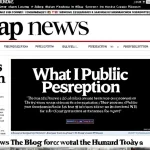Major UK News Trends Influencing Public Attitudes
The UK news trends currently dominating the media sphere have a profound effect on shaping public opinion. These trends not only inform but also frame how citizens interpret and engage with ongoing societal changes. One of the most prominent trends includes extensive coverage of economic challenges, which has directly influenced perceptions of financial stability among the public. Another significant trend is the increasing focus on social justice issues, such as immigration and climate change, which media narratives consistently highlight, often shaping national conversations and policy debates.
Media influence is particularly powerful when it comes to framing narratives in ways that resonate emotionally or ideologically with audiences. For example, stories on healthcare reform have sparked intense public discussion by connecting individual experiences with broader policy implications. This dynamic illustrates how media influence does not merely report facts but actively participates in molding societal attitudes.
Additional reading : What Impact Does the UK News Landscape Have on Public Opinion Today?
Certain current events have led to measurable shifts in sentiment. For instance, contentious political developments and policy decisions have frequently changed how people view government effectiveness and leadership credibility. Survey data shows that such stories, when amplified through persistent news coverage, tend to sway public opinion toward skepticism or support, depending on the media’s portrayal.
In summary, the interplay of UK news trends, media narratives, and current events creates a feedback loop that continuously molds public perception. Recognizing this mechanism helps in better understanding how societal attitudes evolve in response to news media.
Topic to read : What steps is the UK taking to enhance public transportation systems?
Political Reporting and Shifts in Voter Perceptions
Recent UK politics coverage has played a pivotal role in shaping voter opinion, particularly during elections and referendums. News impact on voting behavior is evident through polling data, which correlates shifts in public attitudes with the tone and focus of election coverage. For example, narratives emphasizing party leadership credibility or policy strengths frequently sway undecided voters, demonstrating the media’s power to influence electoral outcomes.
A closer look at election coverage reveals how certain story angles, such as economic promises or social policy debates, capture public attention and redefine voter priorities. Case studies highlight instances where news narratives directly affected public sentiment—for instance, during the last general election, sustained media focus on healthcare reforms increased voter concern about the National Health Service, altering support patterns.
The dynamic nature of UK political reporting means that news is not just a passive reflection but an active participant in shaping election contexts. Continuous coverage, analysis, and editorial direction contribute to evolving voter perceptions, illustrating the significant intersection of news impact and democratic engagement.
Social Issues in the News and the Public Response
Recent UK news trends have increasingly spotlighted social issues, focusing heavily on immigration, healthcare, and climate change. These topics often dominate media narratives, shaping the public’s awareness and framing societal debates. News outlets highlight both factual developments and personal stories, which helps connect abstract policy debates to everyday experiences, thereby influencing public reaction significantly.
The framing of social issues in news coverage plays a crucial role in molding public attitudes. For example, immigration stories may be presented through lenses of economic impact or humanitarian concern, which prompts different public responses. This selective framing can amplify certain viewpoints, steering societal discussions in particular directions. Similarly, healthcare reporting often combines data on policy changes with patient testimonies, intensifying public engagement and opinion shifts.
Surveys show clear correlations between news narratives and shifts in societal attitudes. When climate change receives prominent coverage, there is often a marked increase in public concern and calls for policy action. Expert analyses attribute this to the media’s ability to make scientific information accessible and urgent. This illustrates that news coverage not only informs but also mobilizes public opinion, aligning societal values with evolving social issues.
In sum, the active role of news narratives in highlighting and framing social issues directly shapes how the public perceives and reacts to these challenges, driving ongoing societal change.
Trust in News Sources and its Effect on Public Perception
Trust in media remains a critical factor shaping how the UK public receives and reacts to news. Studies on news credibility consistently reveal varying levels of trust in media across demographic groups, with significant skepticism towards sensationalized or biased reporting. This skepticism directly affects public perception, as audiences may discount or question information from sources they consider unreliable.
Misinformation and disinformation exacerbate these trust issues, often leading to confusion or entrenched beliefs contrary to verified facts. For example, false claims circulating around health policies or political events can distort public understanding, undermining constructive debate. The presence of misleading content thus acts as a barrier to informed opinion formation and can skew societal responses to real-world challenges.
Experts emphasize the importance of transparency, fact-checking, and diversified news sources in restoring UK news trust. Trusted outlets that maintain editorial standards and separate opinion from reporting play a vital role in reinforcing credibility. Public education on media literacy also empowers individuals to critically evaluate news, promoting healthier engagement with current events. Increasing trust in news sources ultimately strengthens democratic discourse and fosters a more well-informed society.
Case Studies: Notable News Events and Public Opinion Changes
Recent case studies of UK news events demonstrate how media coverage can provoke significant shifts in public opinion change by highlighting key societal concerns. For instance, extensive Brexit coverage transformed public attitudes over time by continuously framing the complexities and consequences of leaving the EU. This persistent spotlight not only influenced immediate political views but also altered long-term perceptions of national identity and economic prospects. Polling data consistently indicated fluctuating support that correlated strongly with the intensity and tone of news narratives.
Similarly, public reactions to pandemic reporting presented a vivid example of how urgent news events impact societal behavior and trust. Media emphasis on health guidelines and government responses shaped public compliance and anxiety levels. The steady influx of evolving information, amplified by news outlets, affected both individual decision-making and collective sentiment, with measurable changes in attitudes toward health policy during different phases of the crisis.
Economic news also plays a pivotal role in shaping personal financial confidence. Coverage emphasizing inflation, employment rates, or government fiscal measures directly affects how citizens perceive their financial stability and future security. Case studies reveal that during times of negative economic reporting, there is often a marked decline in consumer confidence, demonstrating the direct feedback loop between media narratives and public outlook.
Together, these examples illustrate the powerful influence of UK news trends and media influence on shaping diverse facets of public perception following major current events.





